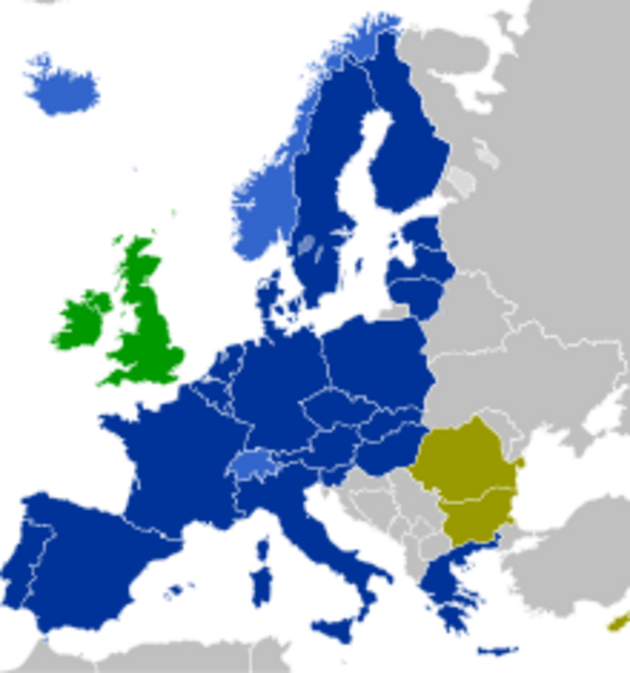European Commission launches new Visa Code

N | E | T Network for the European Private Sector in Tourism
Today the European Commission proposed a package of measures to facilitate Schengen visa processing. Application processes will improve, repeat travel will be facilitated, and a new visa allowing stays longer than 90 days will be introduced.
NET welcomes this initiative: the measures should reduce barriers to tourism from valuable origin markets to the benefit of the whole EU economy.
Mr. Kent Nyström, President of HOTREC, welcomed the initiative by stating: “Today the EU took a step forward in the direction of keeping Europe as destination number one in the world. Measures that facilitate the entrance of tourists into the EU, while keeping the necessary security safeguards are essential, in order to promote tourist arrivals in Europe, generate growth and create new jobs across Europe”.
The visa code, in force since 2010, brought gradual improvement but its implementation has been uneven and too bureaucratic; it is still not fit for purpose. Origin markets report frustration with the lack of mother-tongue application materials and online access; the cost of attending interviews; the impracticality and inconsistency of information requirements.
The effects are serious. In financial terms, the loss of revenue from valuable export markets is very significant and growing. It arises not only from the small minority who are refused visas but also from the much greater number who give up part-way through the application process, or never bother to apply and go elsewhere. If a sales agent will only make a commission when a customer buys a holiday, the temptation to recommend an 'easier' destination is evident. The consequent loss grows geometrically as repeat and referred business benefit the alternative destinations; Europe's competitors are growing in appeal and international visitor arrivals. In practical terms the system is often unmanageable. Visa applications often require details of holiday accommodation; accommodation often cannot be confirmed until passenger lists and group sizes are finalised. This results in loss of business and much wasted time.
The new proposals will not solve all the difficulties, but they will help. Change is challenging as it involves all 26 Schengen states; the Commission is to be congratulated for the progress made. The truth is that intelligent and widespread travel facilitation can be accomplished without any loss to our ability to control irregular migration and assure an appropriate level of security. Travel facilitation brings huge economic benefit. Streamlined processes and increased consular cooperation will provide a necessary correction to what is one of the Schengen area's most significant competitive handicaps in emerging markets.
Patrick Richards, ETOA Chairman, commented: "This is a strong positive step from the European Union; partnering with source markets from the Emerging countries to create a transparent and efficient visa environment in Europe. It also demonstrates tourism's value, both economically and in breaking down cultural divisions. We commend the initiative."
Said Mr. Pierfrancesco Vago, Chairman of CLIA: “As CLIA Europe, we strongly welcome the Commission proposal, which will radically improve the European visa policy. We will continue to keep the pressure on the political institutions to ensure a swift implementation. A smarter visa policy will boost the cruise industry and help us to contribute even more to Europe's economy, while maintaining a high level of security and control in ships, ports and destinations. It will remove red tape for millions of would-be tourists and will facilitate short stay passengers from emerging economies to maintain a better positive passenger destination experience.”
Europe's appeal as a destination is not assured. We must continue to improve levels of service. Prospective visitors, business and leisure, are entitled to expect that visa requirements are justified and proportionate; that they are rational and imposed respectfully. All points of contact with European authorities matter, from consulates in China and India to immigration processes at arrival airports. Improved visa processes are a step forward; we will monitor their impact closely.
Said Mr. Boris Zgomba, President of ECTAA: “The industry applauds the Commission for taking this initiative. Europe’s tourism is bound to benefit from any measures that aim at facilitating the processing of Schengen visas and thus making Europe more accessible and more attractive to potential visitors from important tourist source markets, such as China, India, South Africa, etc.”
* * *
NET, the Network for the European Private Sector in Tourism is a high-level contact group comprising various trade associations. Its members are CLIA, ECTAA, EFCO&HPA, ETOA, HOTREC, IAPAA, IRU. Our purpose is to develop common goals for industry and work with policy makers and other partners to achieve them. For more information please email NET.
European Commission launches new Visa Code



